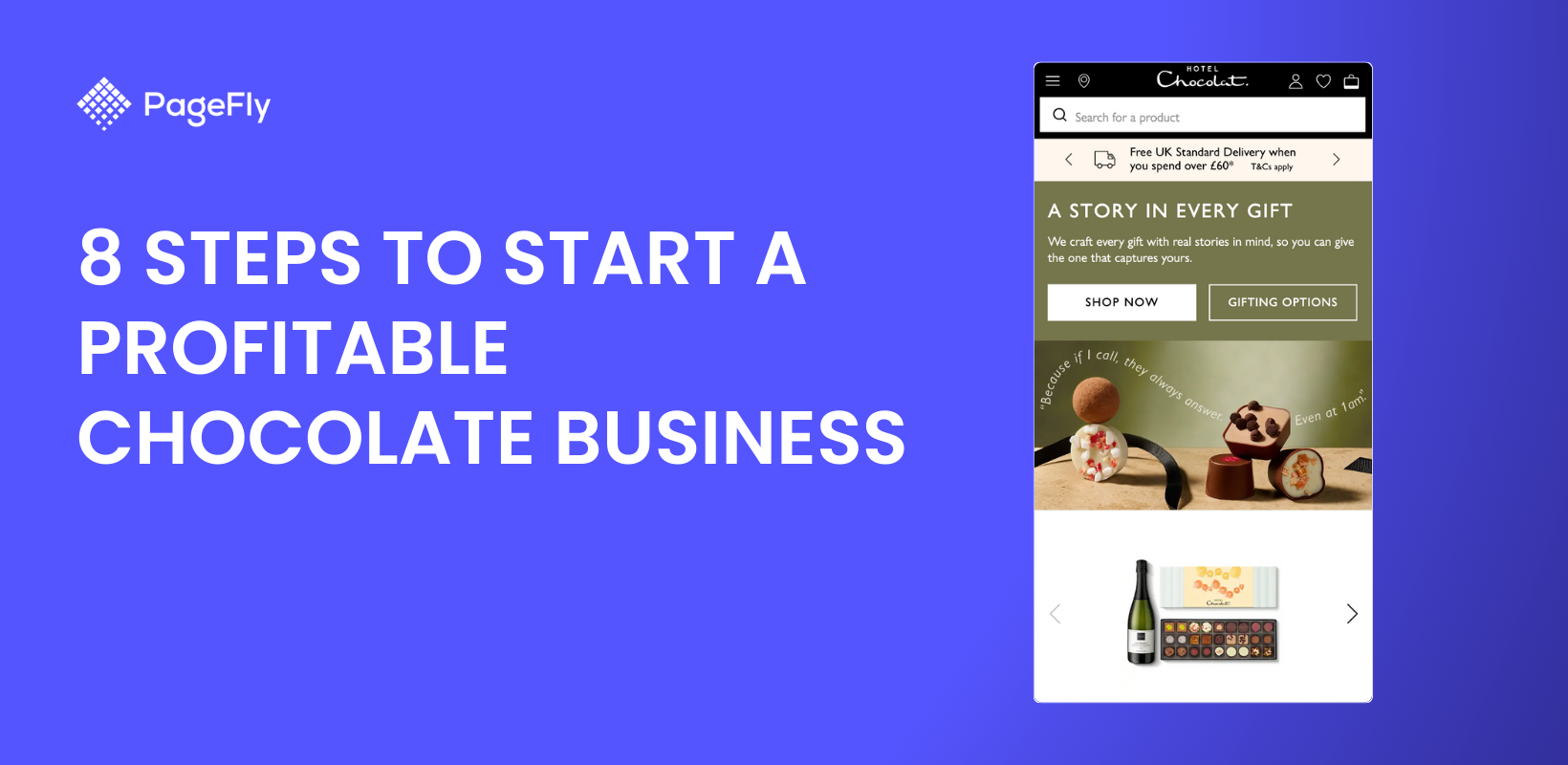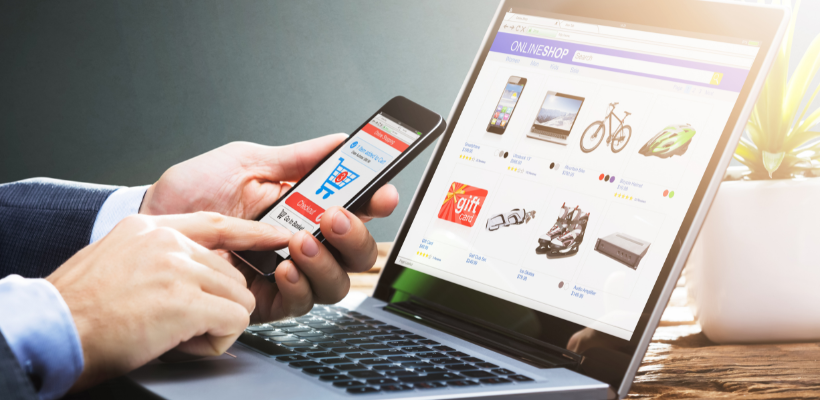For a very long time, many people or organizations preferred the form of business known as retail. There are many different types of retail that are appropriate for various objects' capacities and conditions.
The retail industry is constantly adapting to include new technologies and e-commerce features. A retail business can be modeled in a number of ways to emphasize excellent customer service and a dedication to excellence. Many retailers seek inspiration from other well-known business people in their sector in order to develop a foundation that will be marketable. This article explains what a retailer is and gives you some ideas for your next venture by outlining some examples of retailers.
Outline
- International Women’s Day Social Media Campaign
- Types of Retail Businesses
- 10 Examples of Successful Retail Businesses for your Inspiration
- 1. Walmart
- 2. Amazon
- 3. Alibaba Holdings
- 4. Starbucks
- 5. Nike
- 6. Vans
- 7. IKEA
- 8. The Home Depot Inc.
- 9. Target Corp
- 10. Farfetch
- Conclusion
Definition of a Retailer
A single distribution channel won't be able to satisfy the needs of mass consumers given the rising demand from targeted markets and advertising strategies. It will therefore need to be viewed through multiple channels. Retailers benefit financially from the sale of consumer goods and services through distribution channels. Nowadays, retailer businesses are increasingly replacing brick-and-mortar ones.
Manufacturers frequently use distribution channels to get their products to the market. Additionally, retailers come last in the distribution chain. Small and large for-profit companies that sell products directly to customers are retailers. Retailers search for goods that align with their corporate objectives and find suppliers offering the most affordable prices in order to make a profit. Typically, a distributor or wholesaler can sell small quantities of a product to retailers.
Online retailers like Amazon, Netflix, and eBay are excellent examples. As you can see, retail involves more than just selling goods; it also involves selling services. Online retailers are the fastest-growing trend, as stated in the definition section.
Brick and Mortar Stores
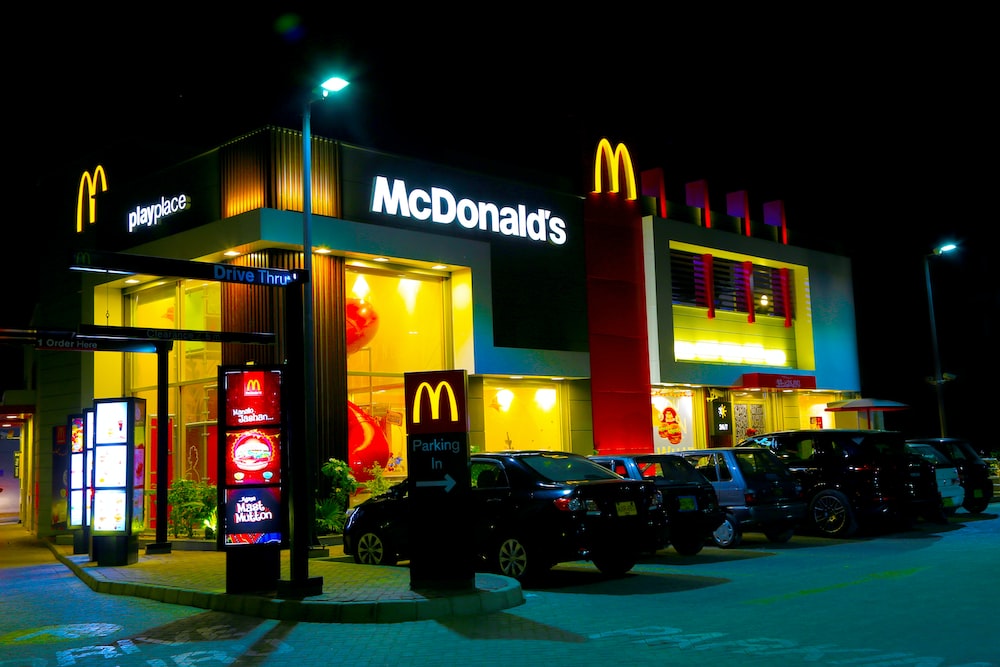
Source: unplash
Retail business that has a physical presence and offer customers a direct experience are referred to as "brick and mortar stores." Brick and Mortar is frequently used to set it apart from transient businesses or online-only presences. For instance, online stores lack a physical location where customers could visit, interact with staff, and make actual purchases and read product reviews.
Brick and mortar stores are gradually going out of style and being replaced by e-commerce retail in the context that online retail is gradually dominating user tastes and habits.
The pros and cons of brick-and-mortar stores are listed below to make comparisons simple.
Pros:
Brick and mortar businesses improve the shopping experience. Direct customer service can play a significant role in boosting a company's sales. Additionally, raise customer satisfaction.
Cons:
Brick and mortar businesses face a lot of difficulties because of fixed costs. Businesses must pay fixed costs for things like store rentals and regular sums for sanitation, security, and other services. It can be challenging for startups and other small businesses to cover all of the fixed expenses associated with their endeavor.
E-commerce Retail
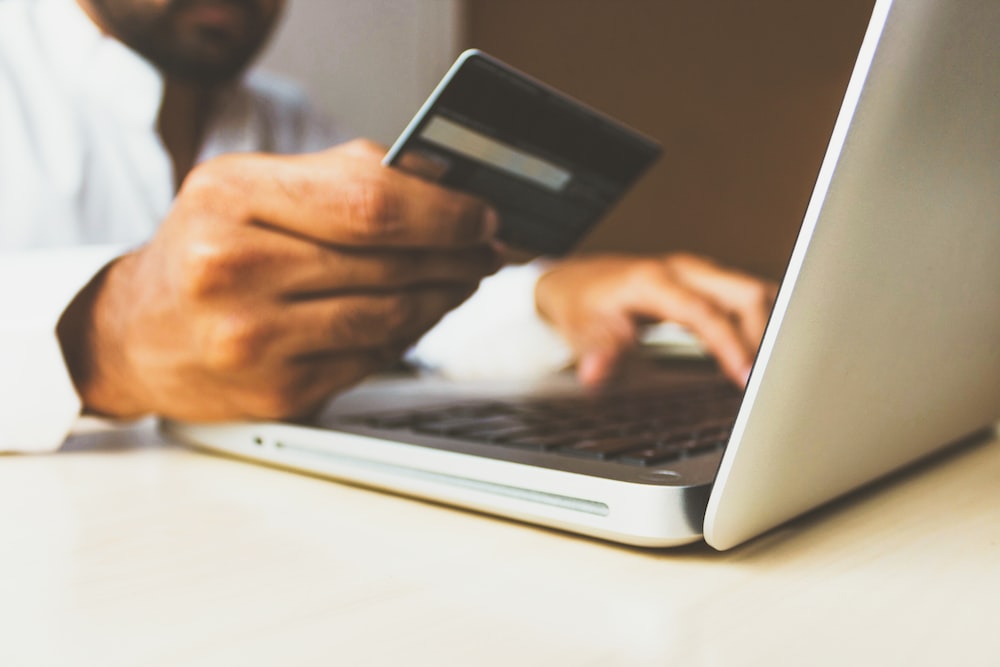
Source: unplash
E-commerce retail is a positive trend in today's world, as was already mentioned. For payment, delivery, or delivery services to be of the highest caliber, an online business needs to have a platform for a website that is visually appealing and well-designed as well as a highly reliable e-commerce system.
You can choose one of the reputable and powerful eCommerce retail platforms below to get started:
- Shopify
- WooCommerce
- BigCommerce
Here comes the pros and cons of e-commerce retail:
Pros:
Businesses can shut down underperforming locations while keeping profitable ones open thanks to e-commerce retail.
Sales and payments automatically reduce the need for staff.
E-retailers can identify spending patterns, website visits, and time spent interacting with a product or service by tracking consumer shopping behavior using data analysis, which boosts sales.
Cons:
Although less expensive than a physical storefront, creating and maintaining an online store can be quite expensive.
Additionally, unlike traditional physical stores, online retailers do not convey the same emotions associated with a shopping experience.
Read more: What Are The Best Type of Retailers for New Business?
Niche Retailing

Source: unplash
In order to differentiate themselves from the competition, many retailers have wisely chosen niche retailing, a well-liked marketing tactic that is currently in the spotlight.
Pros:
Limited market space is a huge benefit for niche markets. This entails significantly fewer competitors on the same terrain.
Cons:
In some cases, the market niche is so small that companies have trouble continuing their operations.
Types of Retail Businesses
Learning about store types increases your understanding of retail in general and gives you a better idea of how you can identify your location and business market joint. Here are some of the most popular retail stores.
Specialized shops
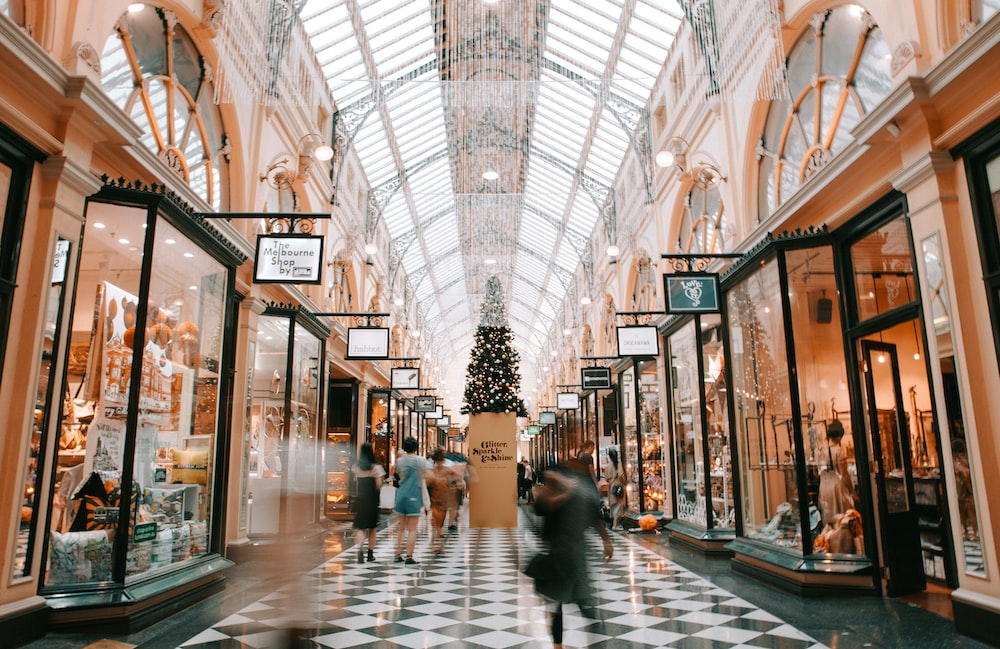
Source: unplash
Stores that specialize in selling goods in a specific field. Stores that sell appliances for the home, stationery, etc.
Pros: Specialized shops offer a much wider variety of goods, allowing enthusiasts who can't find what they're looking for in other shops to shop there.
Cons: A specialized store's degree of success is strongly influenced by the conditions of its particular market.
Grocery

Source: unplash
These stores sell goods in different categories to cater to the common needs of residents in the area. Online grocery shopping is trending in the market. To provide your customers with a seamless online shopping experience, use a specialized grocery store development service.
Pros: Due to the wide range of products, grocery stores can appeal to all kinds of customers.
Cons: There is a small customer base because they typically serve a narrow range. They are also up against fierce competition from large supermarkets and convenience stores.
Convenience store

Source: unplash
People can go to a convenience store at any time to purchase their daily necessities. Wal-Mart, 7-Eleven, and other such retailers are convenience stores.
Pros: Convenience stores' wide range of products, cleanliness, closeness to homes, and time-saving benefits persuade busy customers to shop there now and accept higher prices.
Cons: Convenience stores are more likely to be robbed because they are frequently small and open late.
Boutique Retail Business
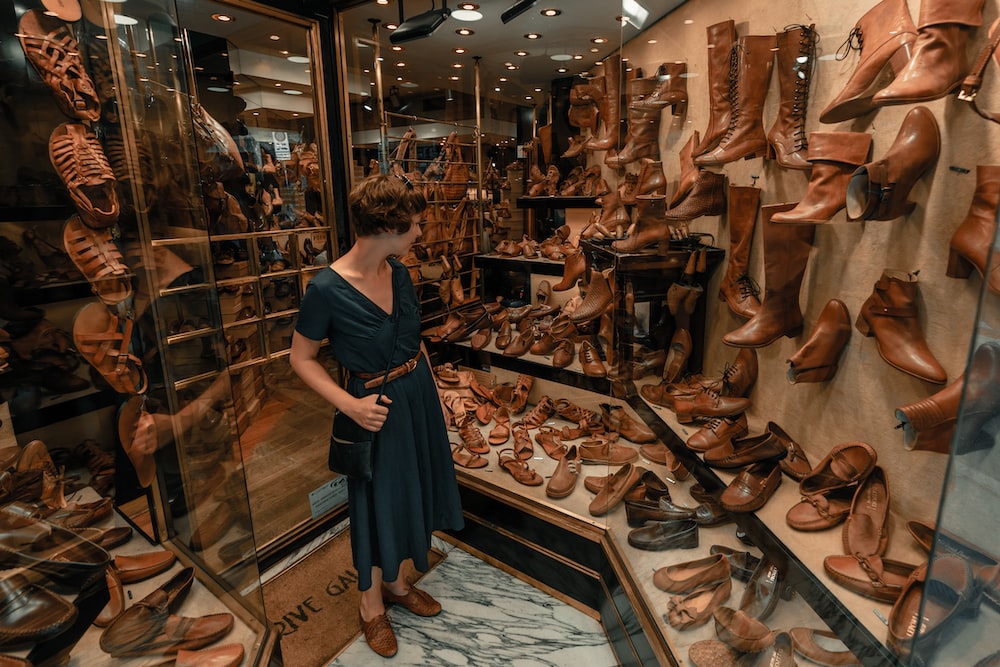
Source: unplash
A boutique is a more compact and focused variation of a specialty store. They concentrate on a single region or facet of a larger industry.
Pros: Boutiques offer more comprehensive products and can offer higher levels of expertise and services. This enables them to draw high-end customers willing to pay a premium, much like specialty stores.
Cons: The stores might not expand if the market isn't expanding.
10 Examples of Successful Retail Businesses for your Inspiration
1. Walmart
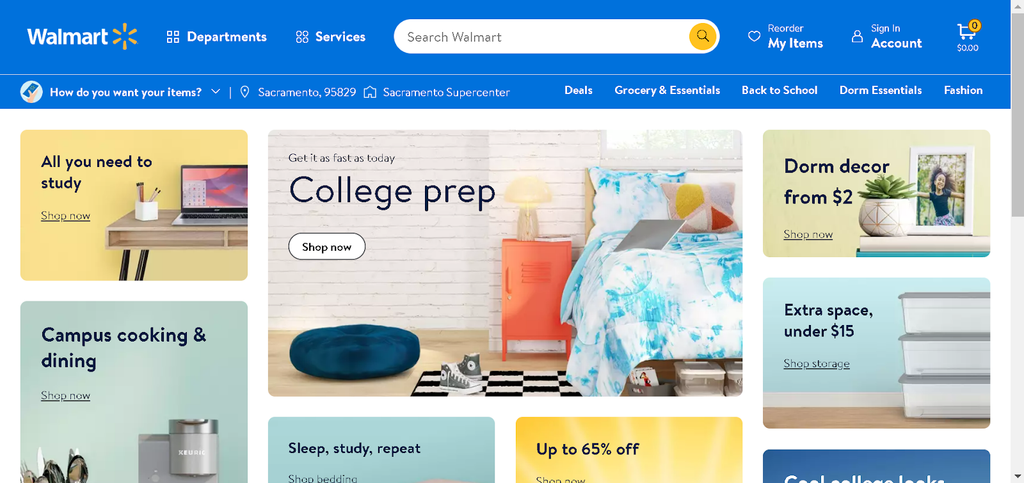
Walmart is another significant player in the retail industry. Walmart typically comes in second to Amazon, but its share of the online market is much lower.
For the 2023 Fiscal Year, online shopping through the Walmart U.S., Walmart International, and Sams Club divisions was approximately $82 billion.
Of course, the accessibility of retail stores to support its ecommerce growth is the difference between Walmart and Amazon. Consumers' convenience in order pick-up is a key component of Walmart's strategy.
Walmart operates in both the retail and wholesale sectors of the economy, offering a wide range of goods and services worldwide at consistently low prices in its physical stores and online. Clothing, housewares, small appliances, electronics, tools for home improvement, jewelry, games, household necessities, and pharmaceuticals are just a few of the products that Walmart sells. Product warranties, auto care, registries, and pharmaceutical services are just a few of Walmart's offerings.
2. Amazon
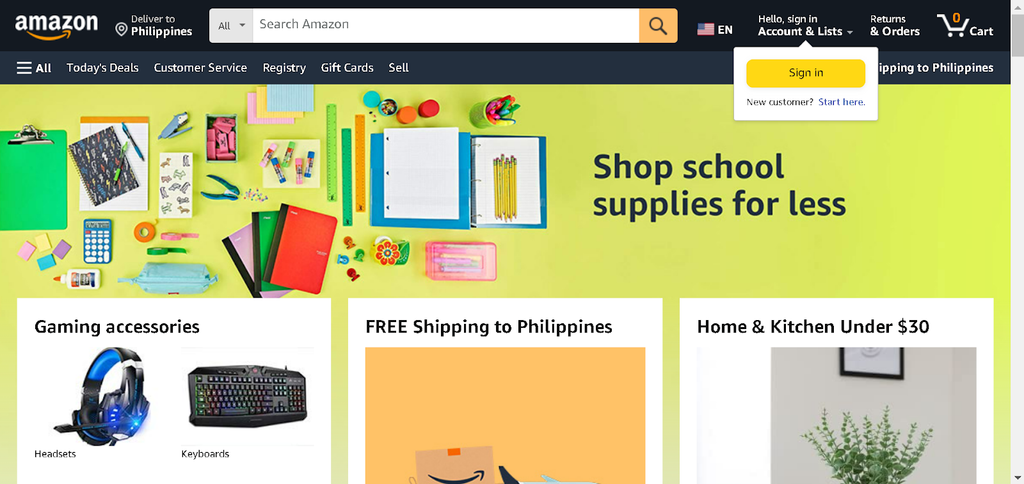
One of the largest online retailers in the world is Amazon. a retailer that offers a wide variety of products and services worldwide, primarily online. This includes products and content that it purchases from vendors for resale as well as that provided by independent sellers.
Amazon provides a variety of web services and subscription services, such as Amazon Music, Amazon Books, Amazon WMS, and Amazon Web Services, which provide streaming entertainment and cloud computing. .The business also produces and markets electronic products, including Kindle e-readers, Fire tablets, Fire TVs, and the Echo hands-free speaker with Alexa3. Amazon also sells groceries via its subsidiary Whole Foods Market Inc.
If you're planning to become an Amazon merchant but haven't launched your store yet, choosing the right store name is a crucial first step in building your brand identity from the ground up. Explore our list of Amazon store name ideas for inspiration, and try our free Amazon store name generator tool to create a unique and memorable name that makes your business stand out.
3. Alibaba Holdings
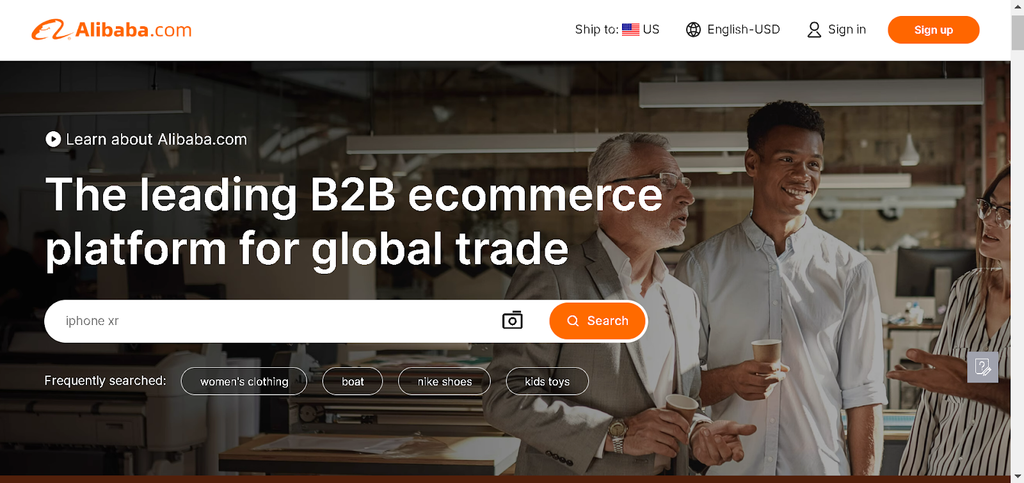
Chinese multinational conglomerate holding company Alibaba Group Holding Limited specializes in e-commerce, retail, the internet, and technology. It was founded in 1999 and is now among the biggest internet and artificial intelligence firms, as well as one of the biggest online and mobile commerce firms.
Alibaba "Culture and Values".
The goal of Alibaba is to make doing business simple everywhere. Consumer-to-consumer retail website Taobao, business-to-consumer retail website Tmall, and the biggest third-party online and mobile payment platform in the world are among the company's businesses.
Quick read: Wholesale vs Retail: Everything You Need To Know
4. Starbucks
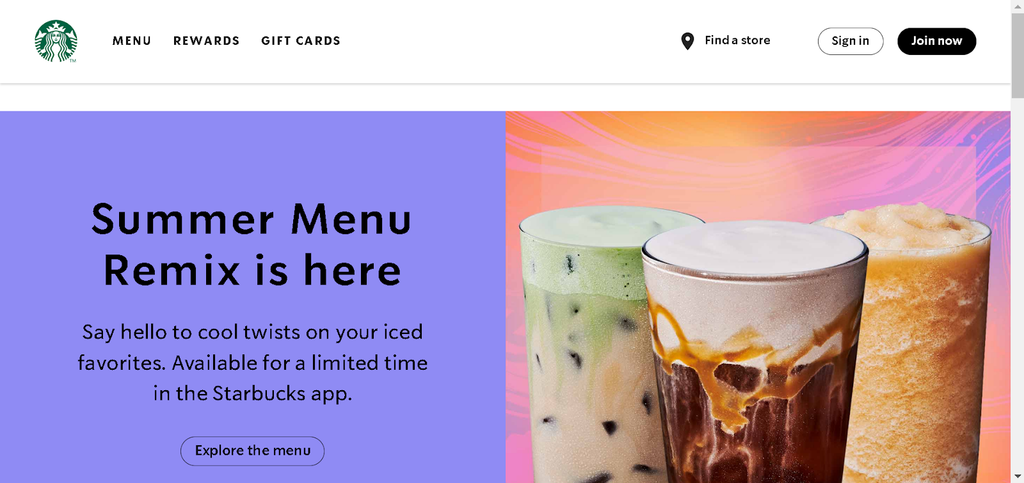
Since its modest beginnings in 1971 as a local coffee bean vendor in Seattle, Starbucks has evolved into a global retail phenomenon. What began as a simple vision to create a space for coffee enthusiasts has grown into a lifestyle synonymous with quality, innovation, and community. Meticulously sourcing premium beans, crafting inviting store environments, and embracing ethical practices have propelled Starbucks beyond being a mere coffee provider to an iconic experience that resonates with conscious consumers worldwide.
Beyond its beverages, Starbucks has crafted an environment where productivity and relaxation coexist. Thoughtfully designed interiors, comfortable seating, and ambient music foster an atmosphere that transcends traditional retail spaces. Mobile ordering revolutionized convenience, while an expanded menu caters to diverse tastes, showcasing Starbucks' adaptability and customer-centric approach. With a remarkable global presence spanning over 80 countries, Starbucks has mastered the art of expansion while understanding its audience deeply, setting an inspiring benchmark for retail success.
5. Nike
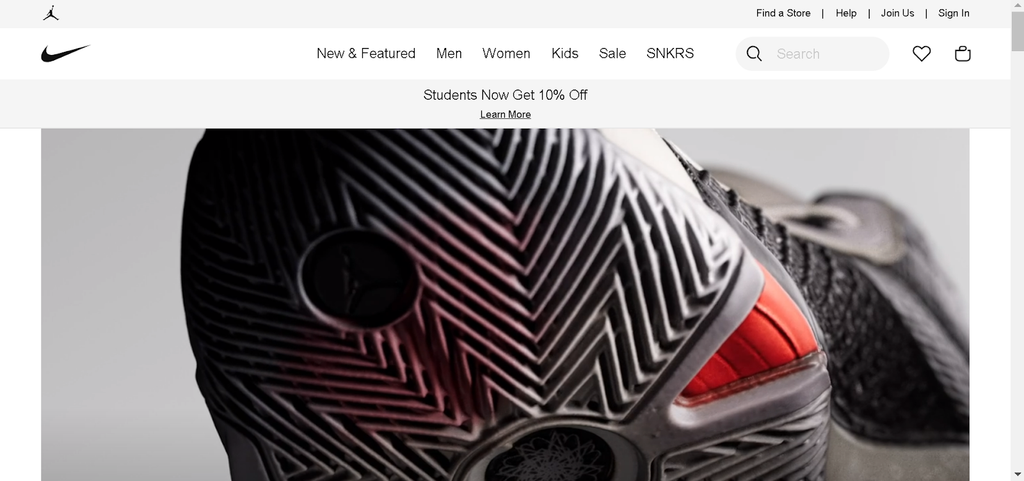
Nike sells its products through three main sources: retail stores, Nike’s online store, and company-owned retail outlets. Nike's use of retail outlets is a successful strategy because it enables them to reach their customers where they are without spending a huge sum of money to establish a chain of brand-specific stores. Their online store offers more options than physical stores, but it is limited because customers cannot view and test the products before making a purchase. The retail locations of Nike serve as an additional channel for customer contact and frequently offer more affordable prices than regular retailers. However, their reach and access to populations are constrained.
6. Vans
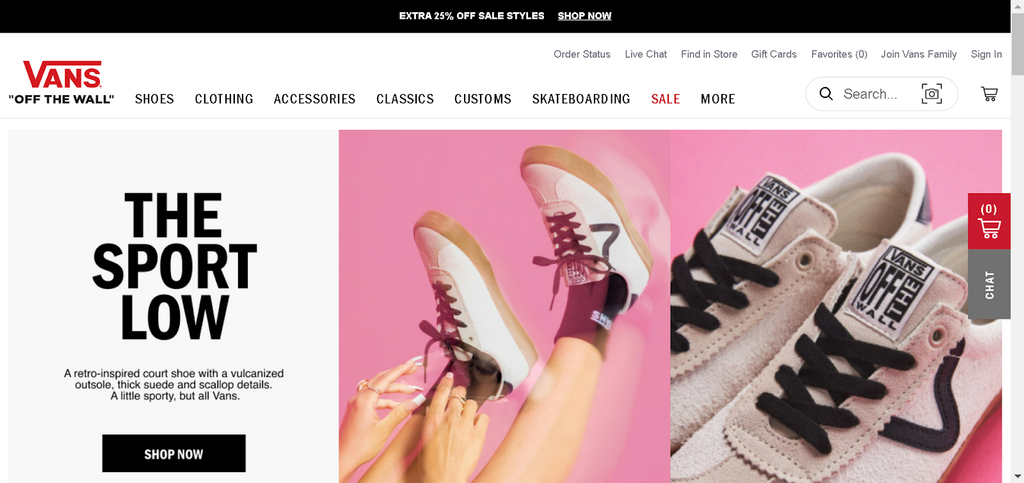
Vans is a manufacturer of footwear for action sports and apparel for both men and women. The company's tagline, "Off the wall," recognizes the brand's beginnings as a well-liked hangout for skateboarders in the middle of the 1970s, who were known for their artistic creativity and cultural rebellion. Since then, Vans has worked to maintain its cultural roots through an immersive retail environment.
A meeting point for street culture and fashion is London's House of Vans. In order to grab the attention of its young audience and design a useful space, it makes use of music, art, and BMX décor. An in-store cinema, art gallery, live music venue, and other amenities are available for customers to socialize while they shop. Additionally, the structure has a concrete ramp and street course that the building's target market can impromptu use when they enter the store.
7. IKEA
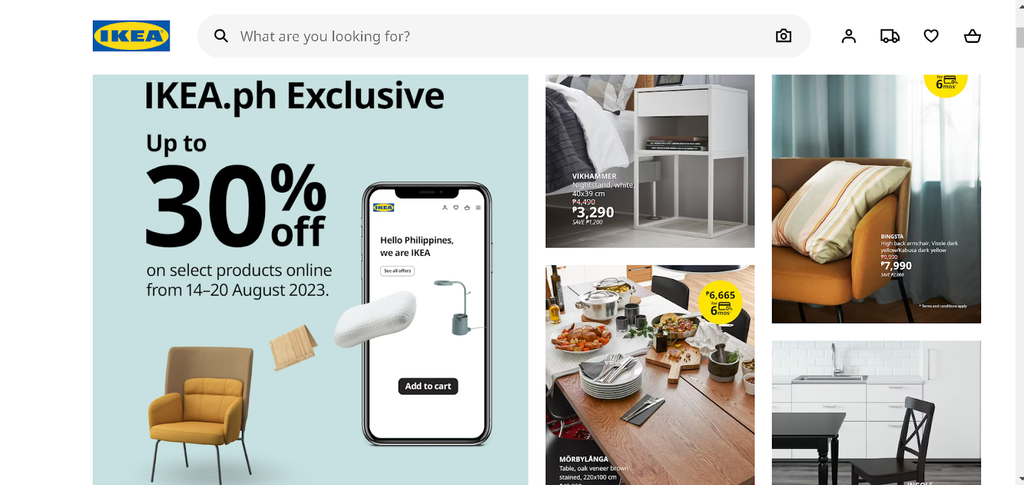
IKEA is one of the oldest businesses on our list, having existed since 1943. When Ingvar Kamprad founded Ikea at the age of 17, it was a retailer of home goods like furniture, appliances, kitchenware, and accessories. Along with the conventional warehouse stores, online sales have made a significant impact.
Movies shot all over the world demonstrate Ikea's dominance in home furnishing on a global scale. The Swedish retailer's practical and inexpensive DIY furniture is still well received and is available in blue and yellow big-box stores. Additionally, in an effort to expand into new markets, the retailer is currently relaunching its online store and moving into cities in Latin America.
Ikea offers a variety of other products and services for the home in addition to ready-to-assemble furniture. The Swedish company was one of the first to sell flat-pack furniture, and it was very successful. Ikea is still relevant today thanks to its ability to gather customer insights from social media.
8. The Home Depot Inc.
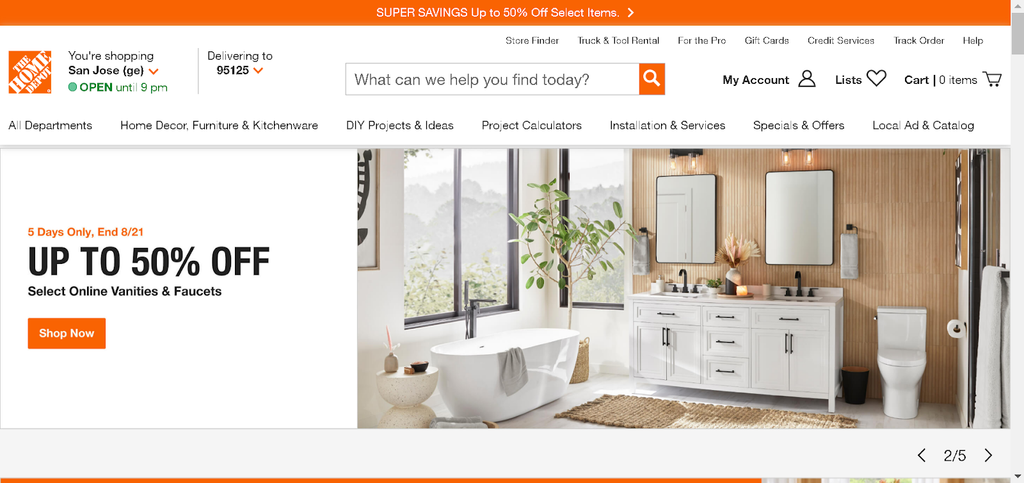
Building supplies and home improvement products are sold in the hardware stores run by Home Depot. The majority of its stores are found in North America. The company sells a huge selection of lawn and garden, home improvement, and building material products. The business provides a range of services, including tool and equipment rentals as well as installation services.
9. Target Corp
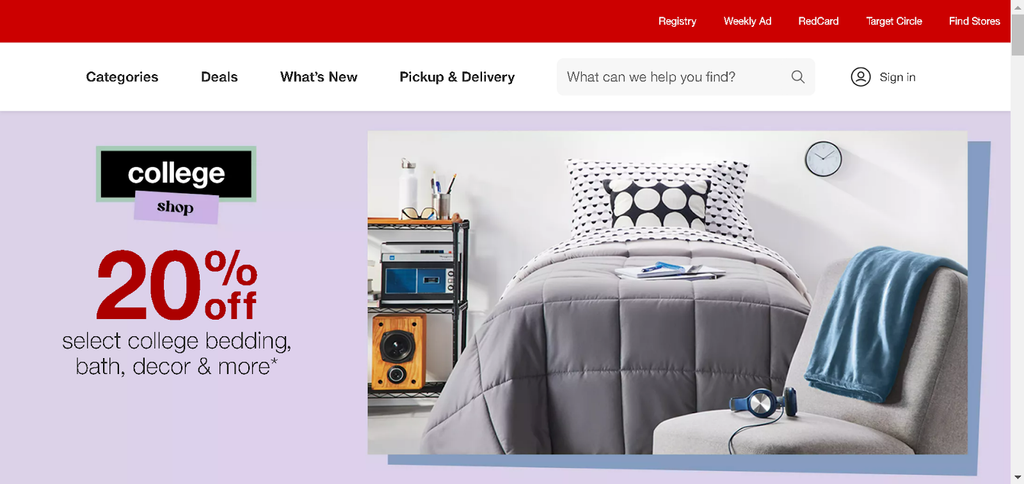
Target offers a variety of curated and general merchandise as well as food assortments, including perishables, dry grocery, dairy, and frozen items at discounted prices, in 1,954 stores across the United States and online. Market Pantry, Pillowfort, Favorite Day, and Good & Gather are a few of its brands.19
10. Farfetch
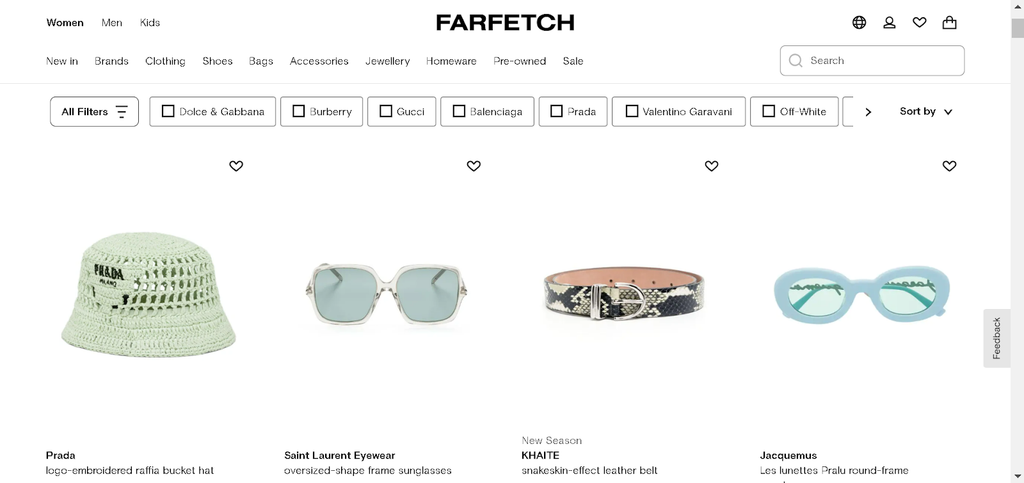
Farfetch is an e-commerce store that sells luxury clothing from a range of designer brands. It creates a distinctive experience for both designers and customers by fusing fashion and technology. This strategy is a reaction to retail technology advancements, which have led to an increase in online storefronts.
The online experience should be as "human" as possible, according to Farfetch. In Farfetch's Store of the Future, the online and offline worlds converge. With the help of sign-in desks, connected clothing racks, and touch-screen smart mirrors, it uses data to enhance the shopping experience. Customers can view their wish list and purchase history at these stations, allowing sales representatives to customize their recommendations. This company demonstrates how cutting-edge technology can improve in-store customer experiences by making them as quick and efficient as online shopping.
Conclusion
For those of you who are planning to start a retail business, retail knowledge is extremely important. I hope you find something helpful from this article.
After seeing these retail stores for the first time or realizing the revenue and power behind these companies, you are probably more than interested in becoming one of the biggest retailers in the world, too.
Use this list of successful retail companies as an opportunity to grow your business with the strategies implemented by the biggest players in the market.
Explore more, check out: Omnichannel Retailing Strategy: The Key to Success for Retailers





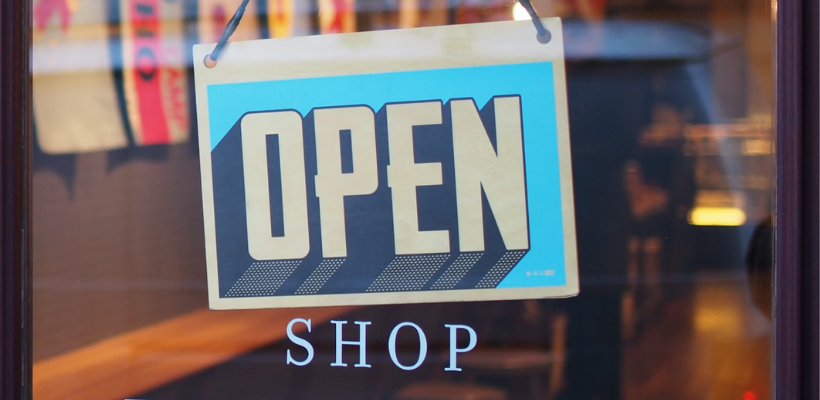

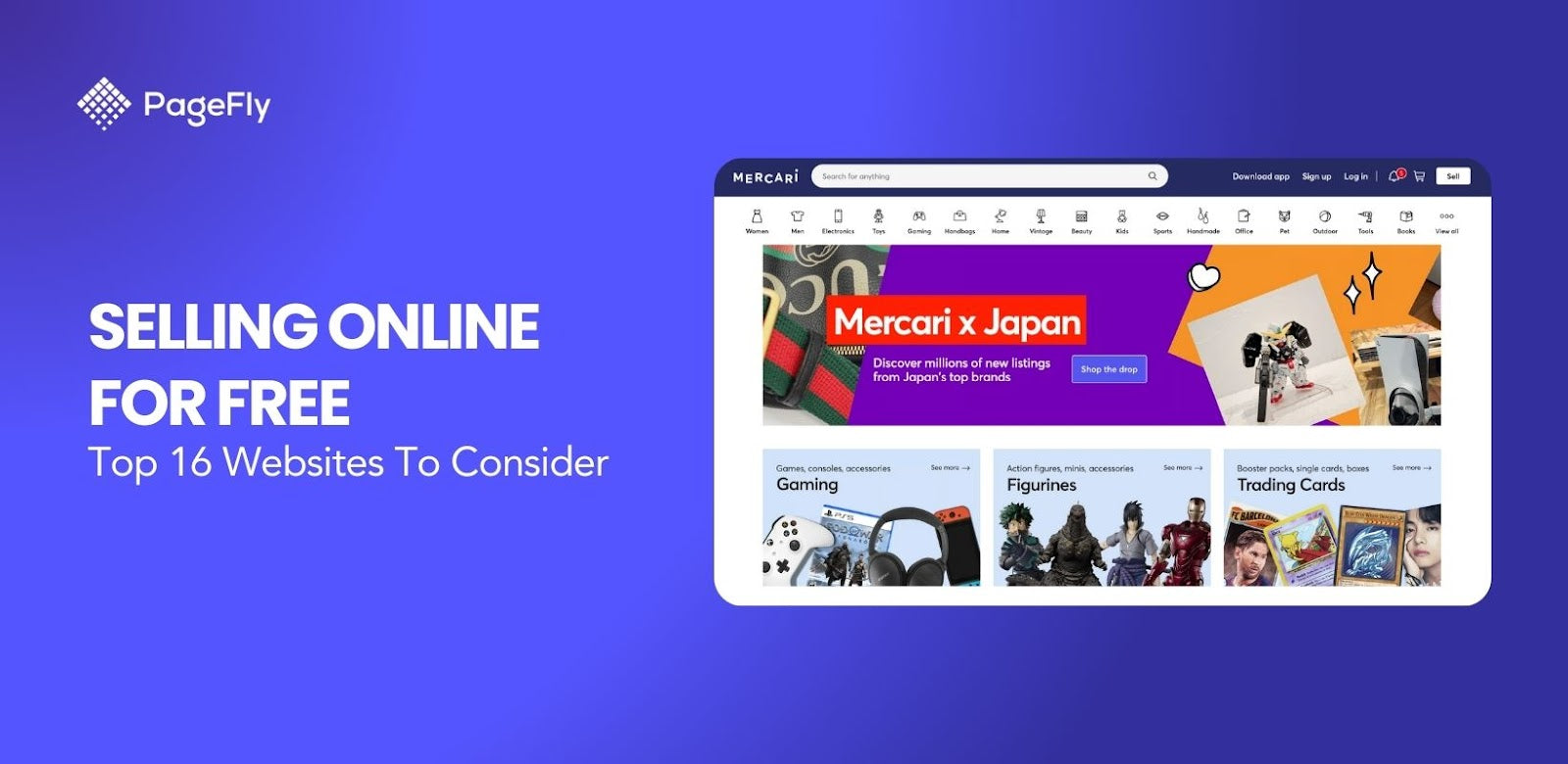
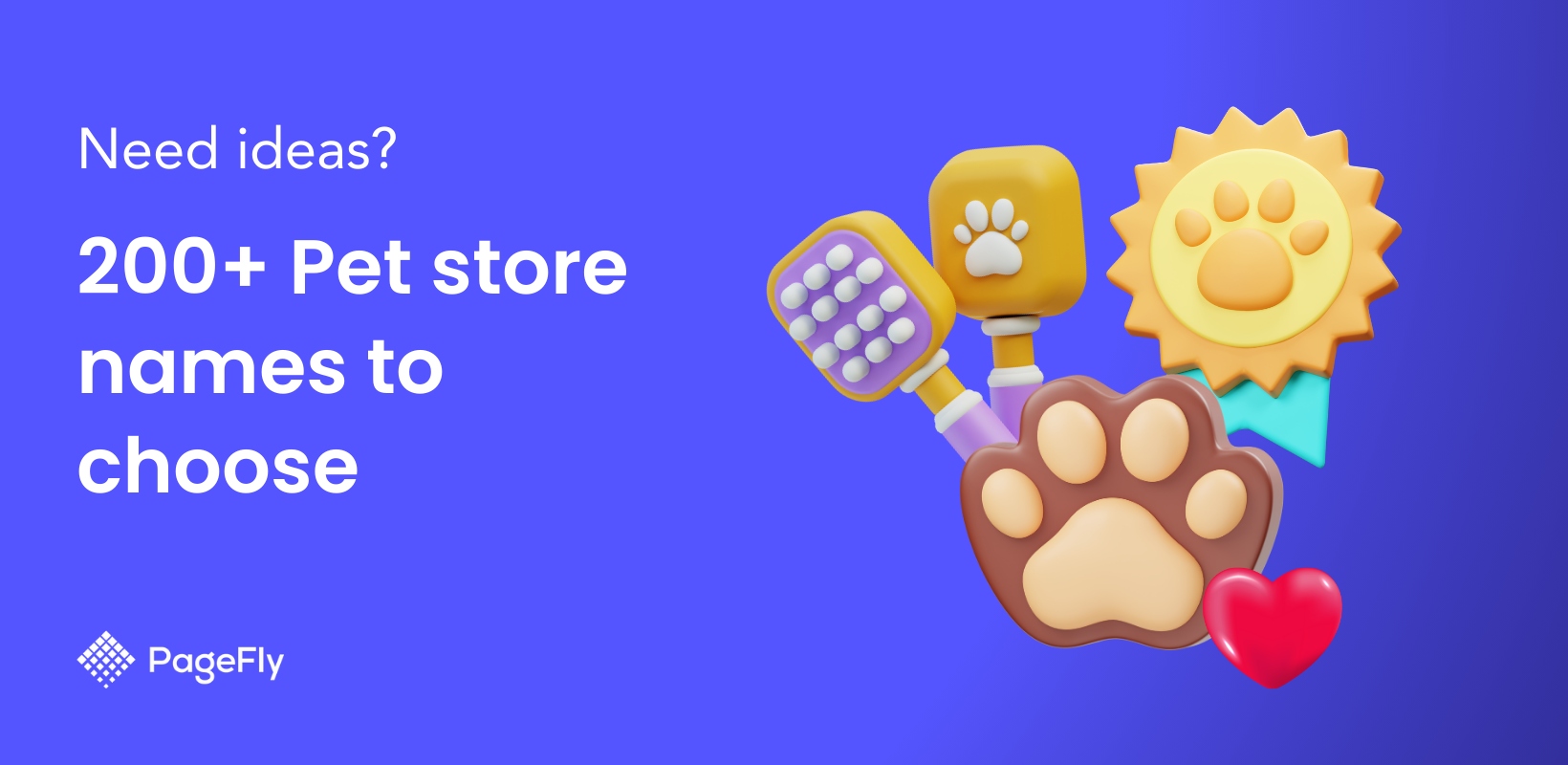
![14 Profitable Small Food Business Ideas for 2025 [Real Numbers]](http://pagefly.io/cdn/shop/articles/1_58b587d2-13db-4aa6-8c19-e40f5c88d3eb.jpg?v=1758255771&width=4460)
![Art Business Names: 350+ Ideas + Free Generator [2025 Updated]](http://pagefly.io/cdn/shop/articles/art_business_name_e94a54e9-d325-4ba3-94ab-7b4297952312.png?v=1760062968&width=1640)

